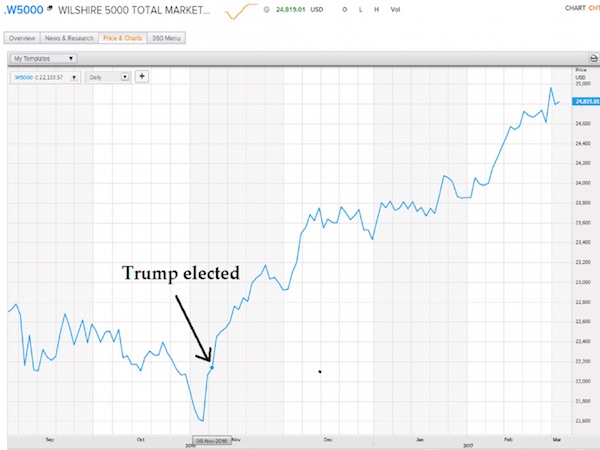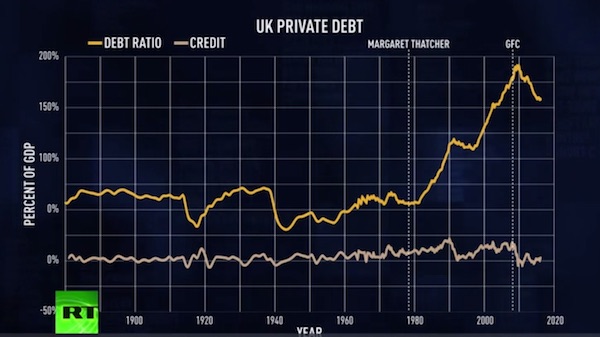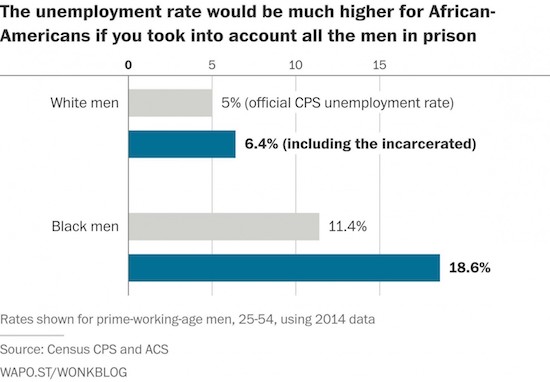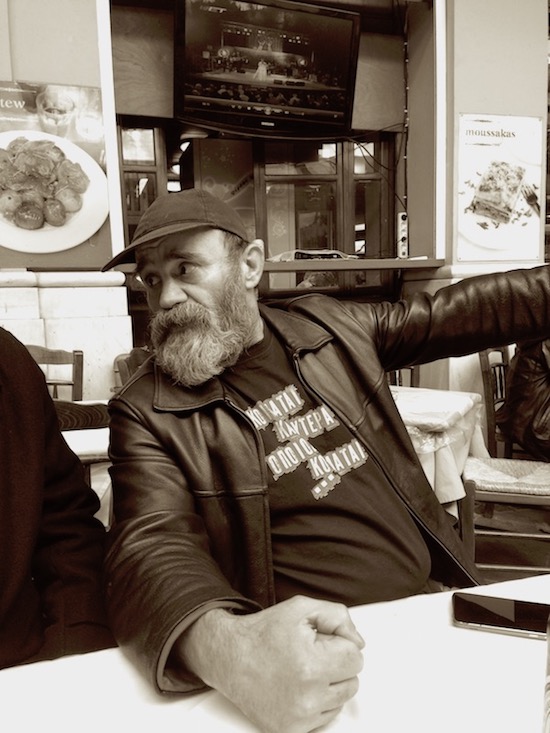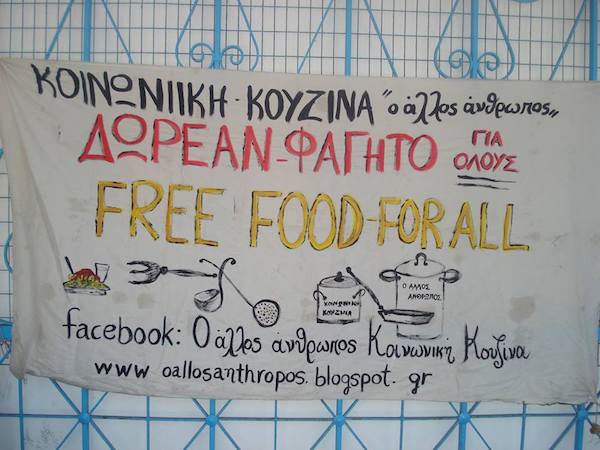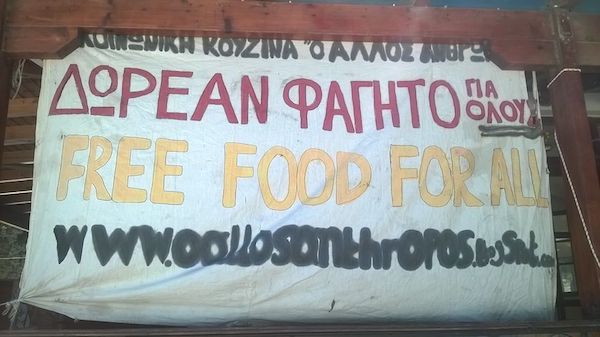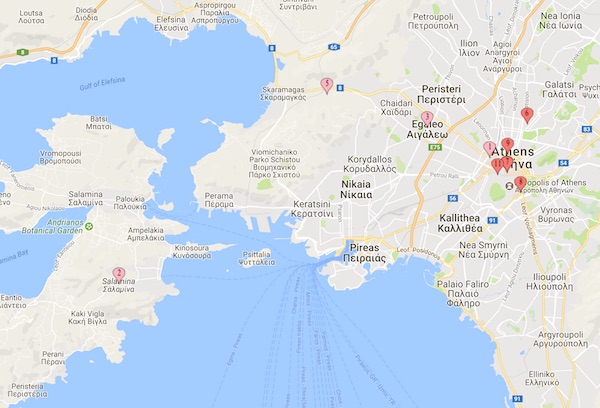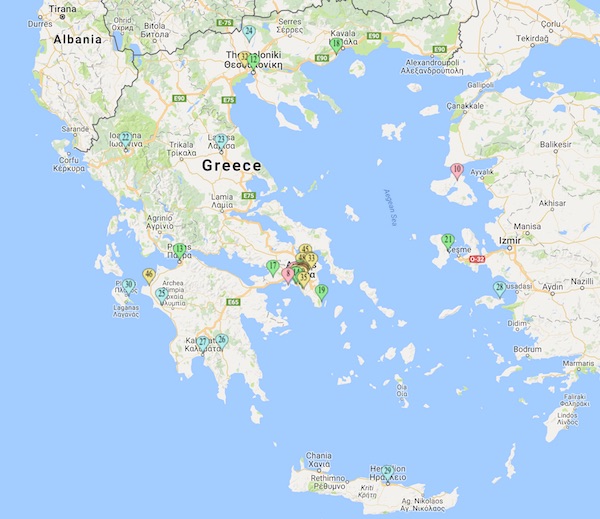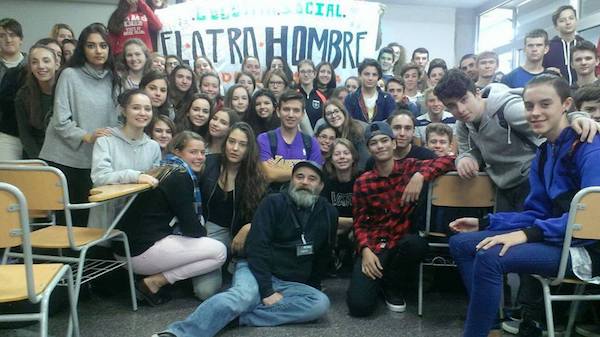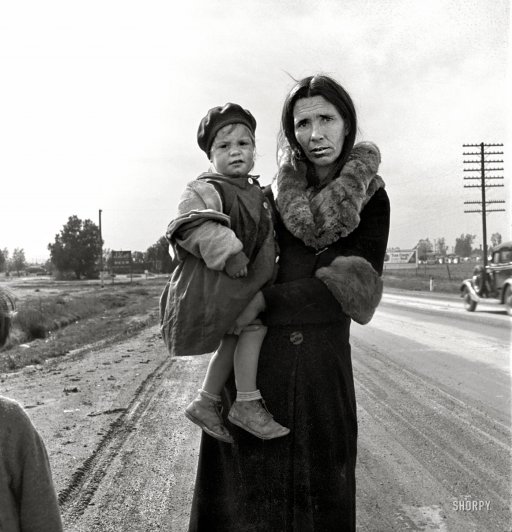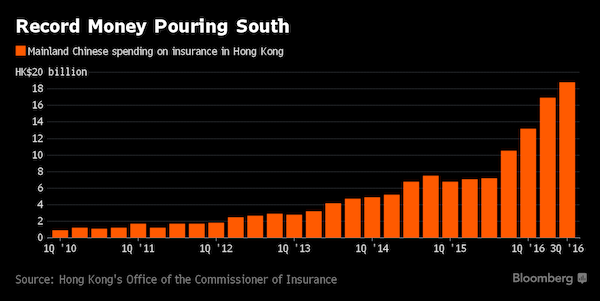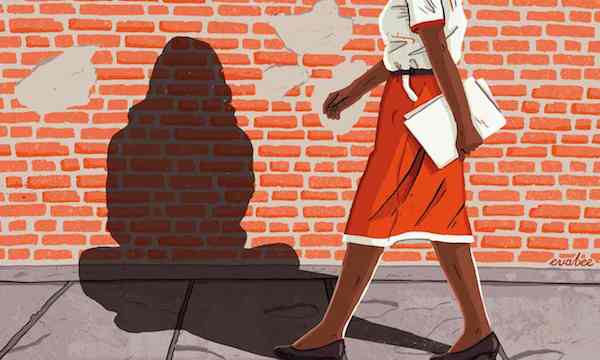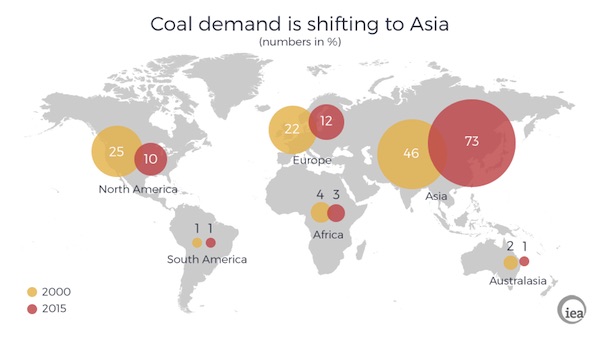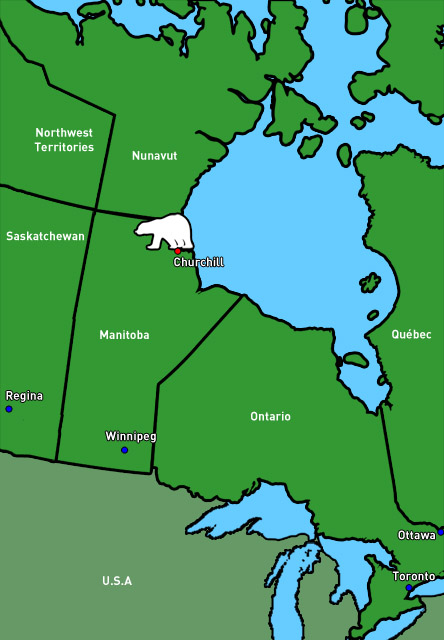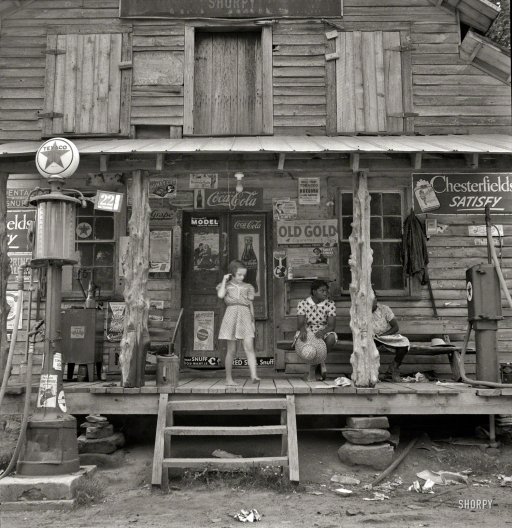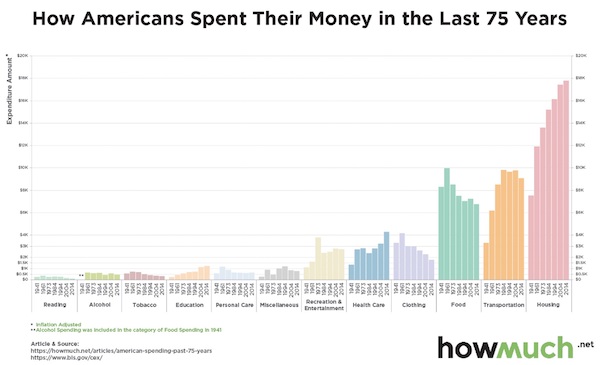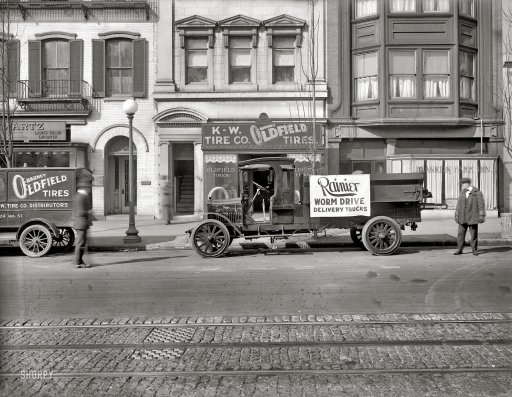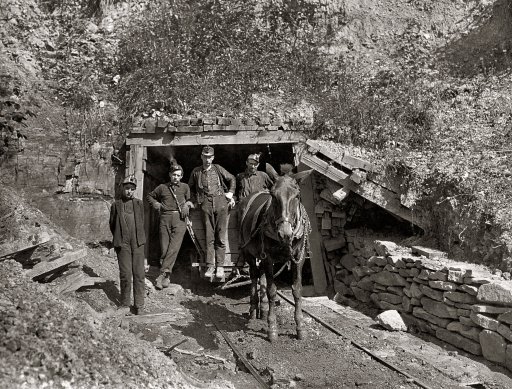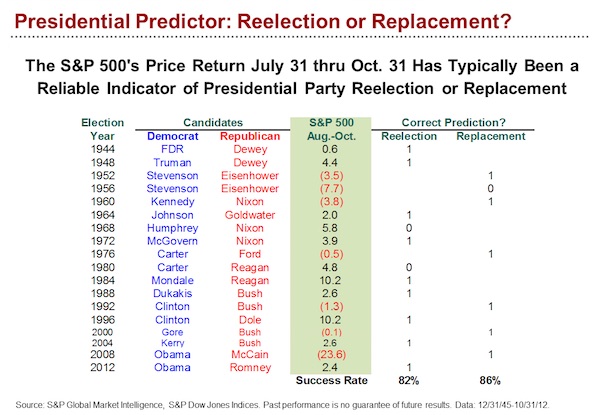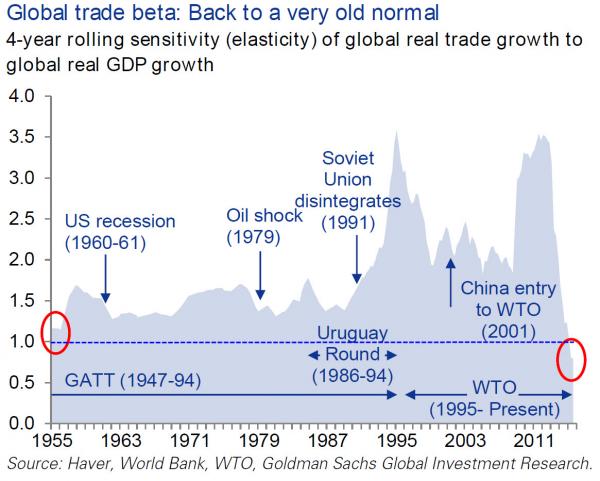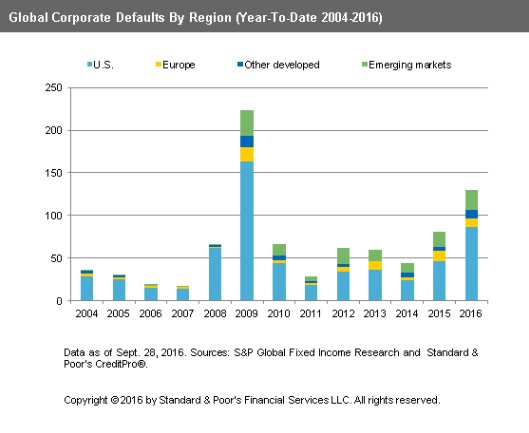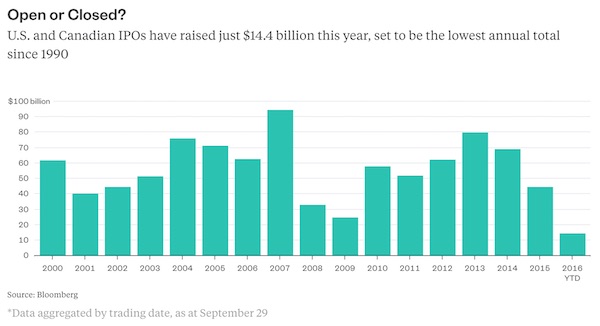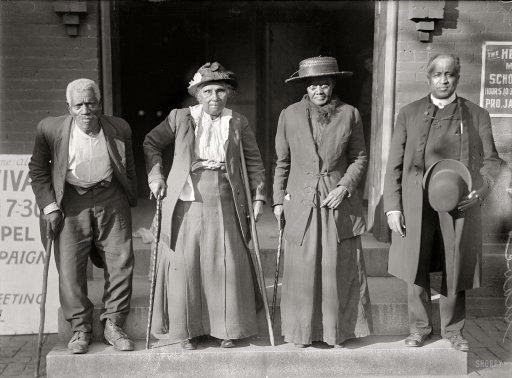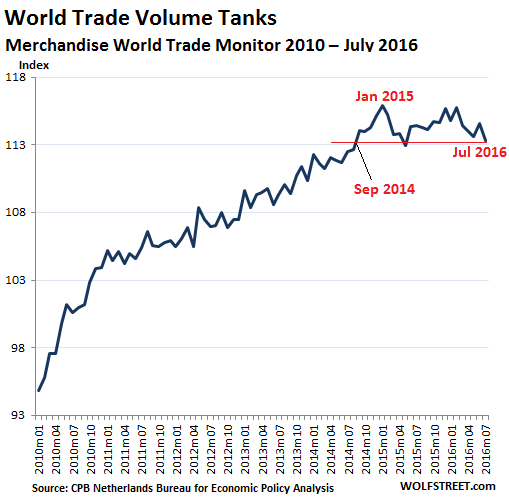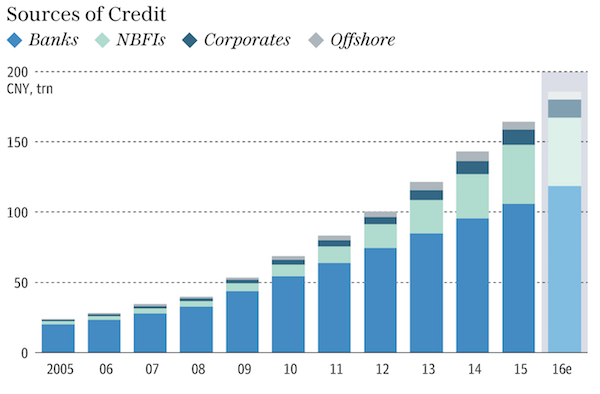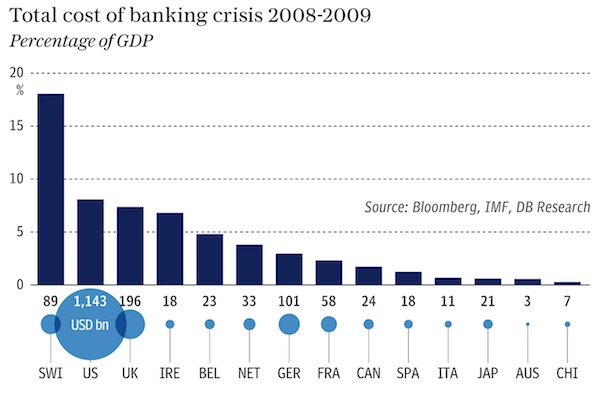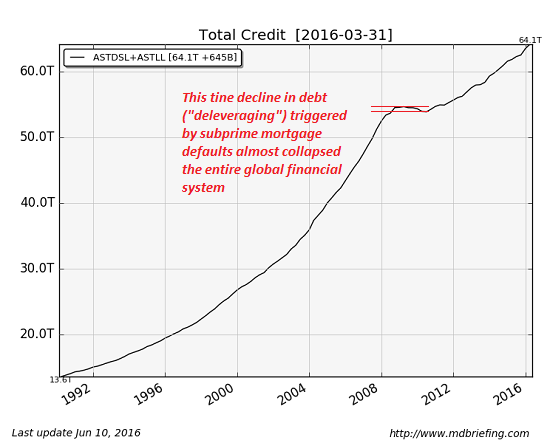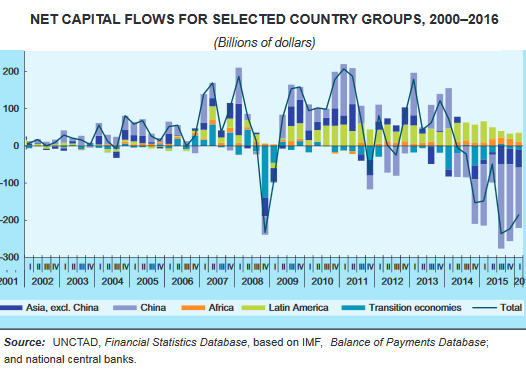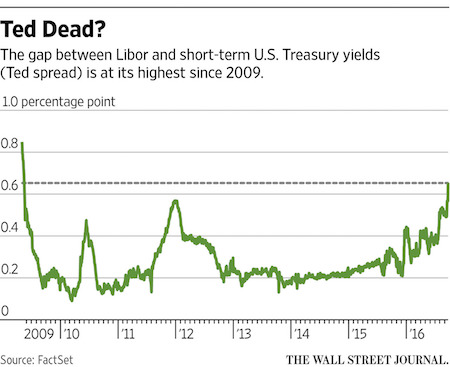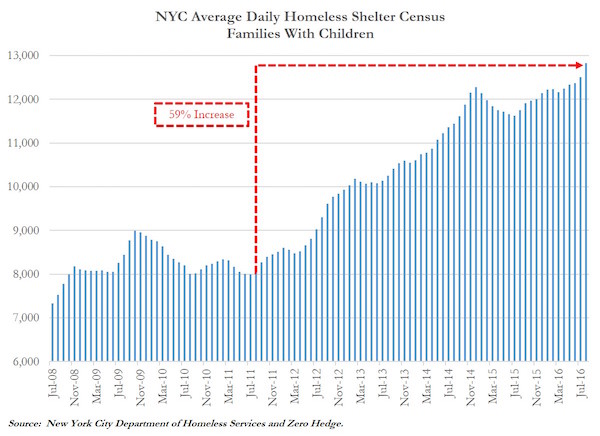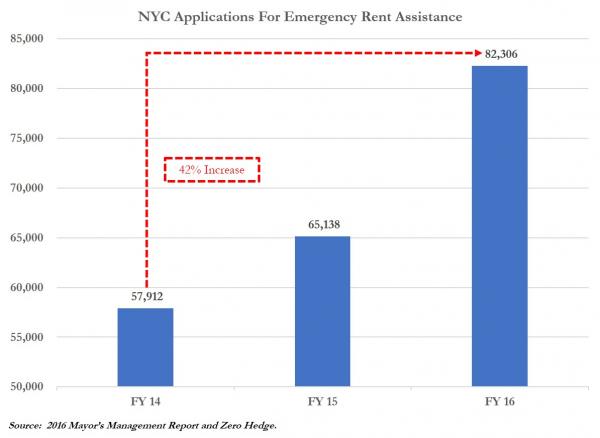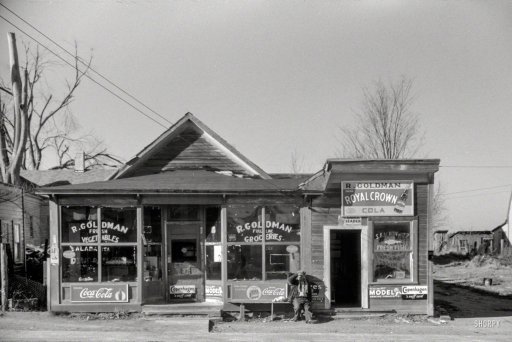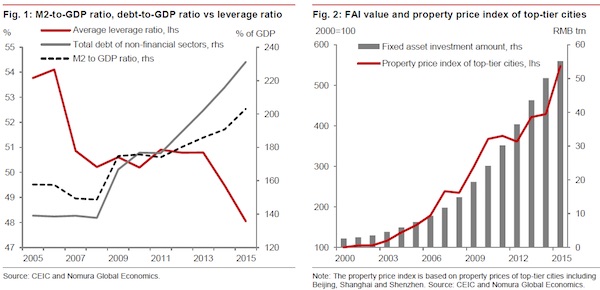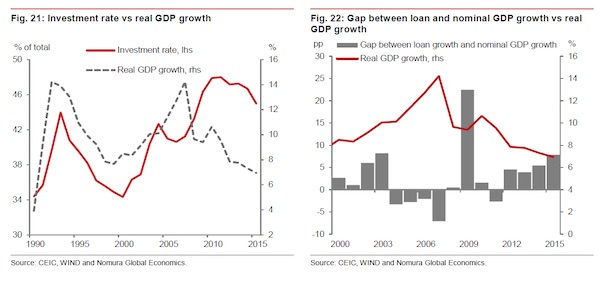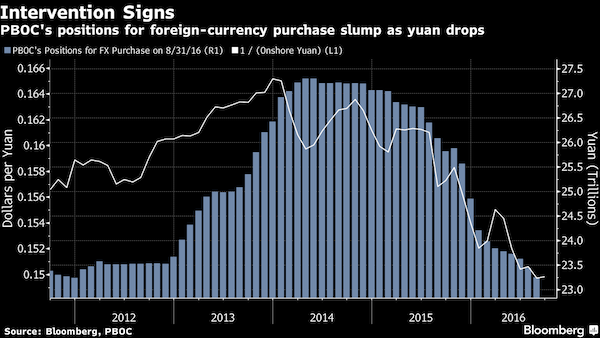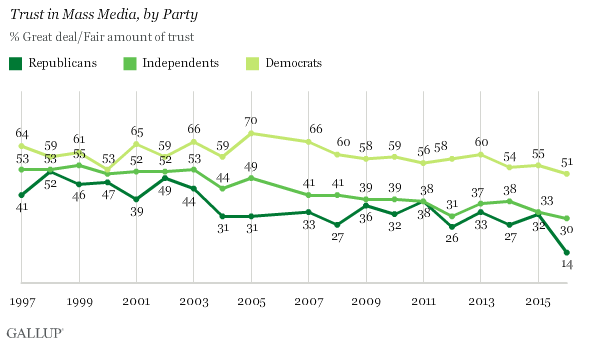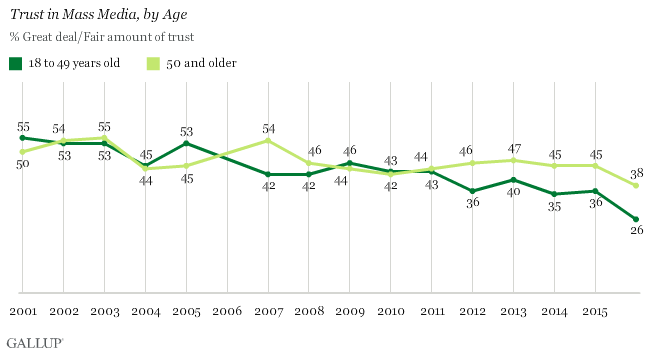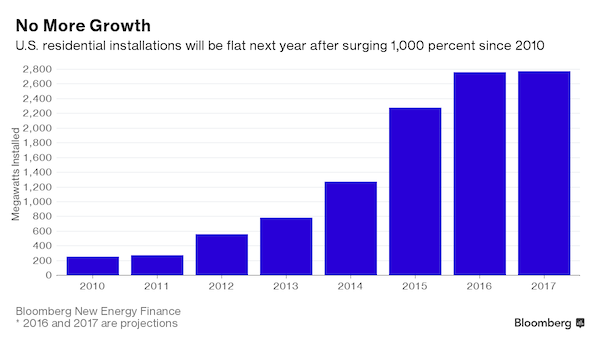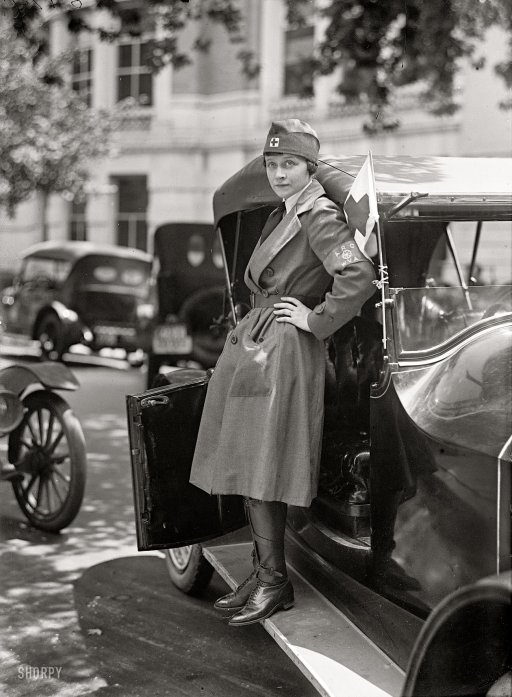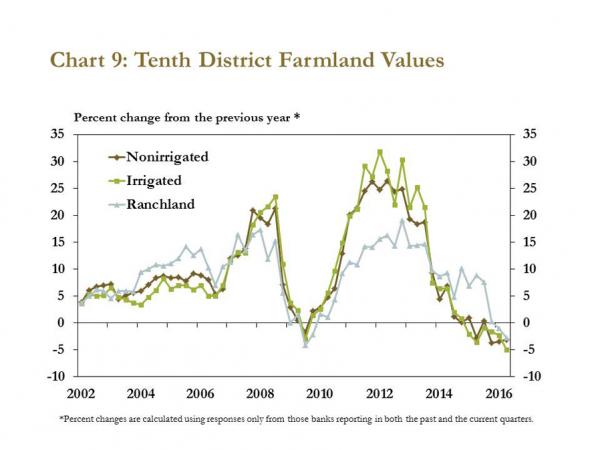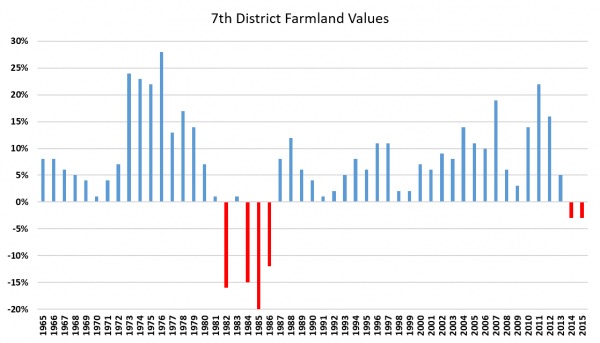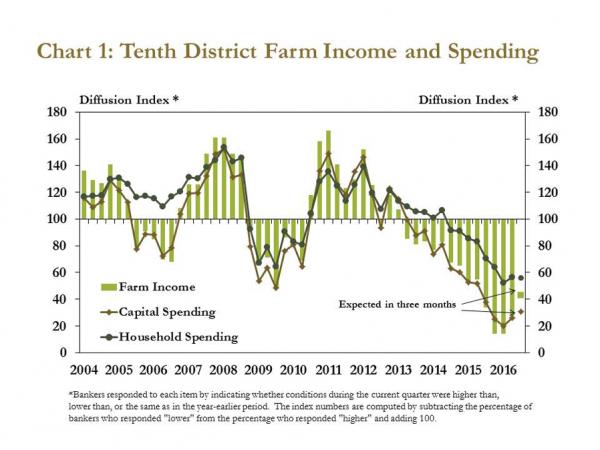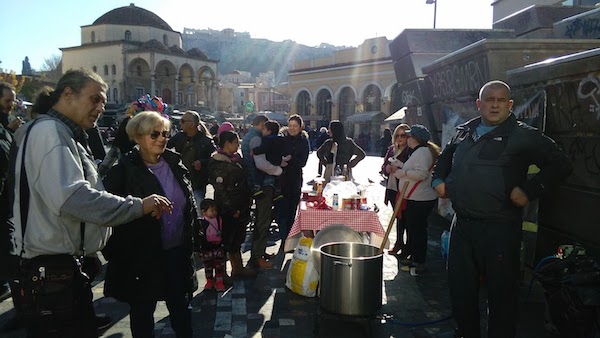
Live cooking in Monastiraki Square, Athens
Every time I write about my ‘adventures’ in Greece for the Automatic Earth for Athens Fund, which I initiated in June 2015, I think it’s been way too long, but also every time I realize that I’ve already written so much about it (which makes every new article harder to write as well). Still, it’s been three months since the last one, and as always lots has happened; we’re not sitting still. As always, there’s a full list of previous articles at the bottom of this one.
To start with the latest development, I gave Konstantinos Polychronopoulos of O Allos Anthropos another €1,000 (the last funds I had) on March 15, which he needed to go to Lesbos, where he’s been asked to help set up a ‘Multi-Center’, to be jointly built by Greeks and refugees. It’s an initiative of a privately funded organization named Swisscross, to be located outside of the horrible Moria camp.
The center, which will have no sleeping facilities, is designed to make life more bearable for the refugees stuck inside Moria. It will provide shower rooms, laundry facilities, a kindergarten, a school (remedial teaching), a cinema, cafeteria and a restaurant.
O Allos Anthropos will be in charge of the restaurant, which will also be very much geared towards providing space, equipment, food and resources for the refugees themselves to cook. An often overlooked part of the refugee tragedy here in Greece is that preparing food is an important aspect of family- and community life, a source of dignity and pride, that has been taken away from them and replaced by real bad catering.
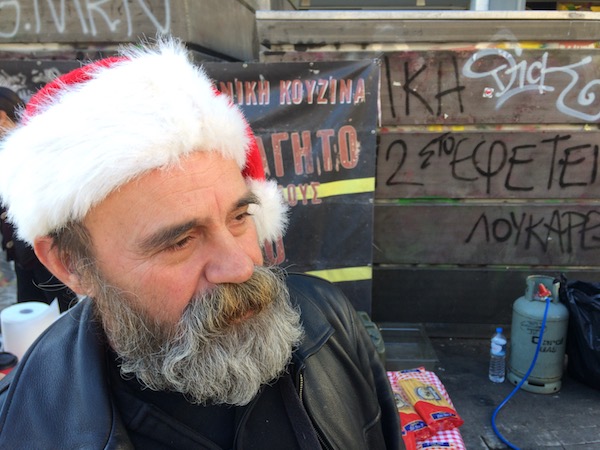
Thank you to the Texan girls who donated their Santa hat to me for Konstantinos on December 25. Perfect fit!
We’ve had the fifth anniversary of O Allos Anthropos in December, and of course Christmas. Then we had New Year’s, and on January 8 Greek New Year. February 16 was Tsikno Pempti (aka Charcoal Thursday or Greek Cholesterol Day), when everyone eats roasted meat – there’s a connection with carnival there-, and the Monday after that was Clean Monday, the end of carnival and the start of what is probably best compared to Lent, what once upon a time was a 40-day period of ‘fasting’ all the way to Easter. No Fat Tuesday or Ash Wednesday, as far as I could find.
Konstantinos and his people made sure that everyone, homeless and refugees, had a Christmas and New Year’s party like ‘normal’ people. Someone had donated a whole lot of turkey for Christmas, there was some meat to eat, and on Cholesterol Day there was even over 1000 kilos of meat to be spread to the Social Kitchens all over the country. It’s the kind of thing that makes people feel they do count, and they do belong, despite the misery they find themselves in.
Just as important, if not more, was the fact that all children who were present in the Big House in Athens, many of whom are homeless, received presents on Greek New Year. That means so much to them. Holidays without presents is cruel to children. I’ll sprinkle some pictures through this article.
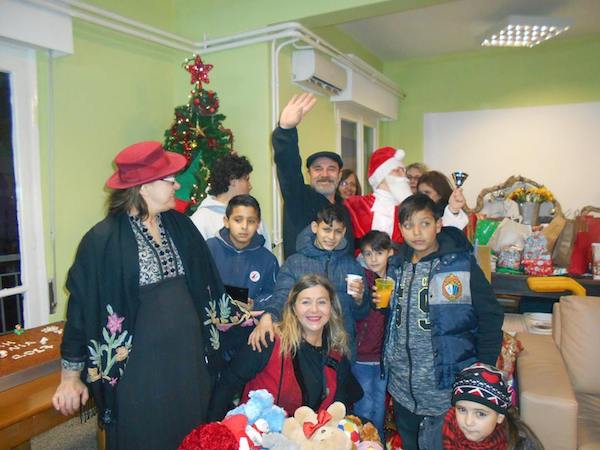
Nobody gets left out at Christmas
Through all these events one thing that kept popping into my head was how close they brought joy and misery together. It’s pretty much priceless to see the happiness in people’s faces when they are served a real Christmas meal, a sign that they belong to the ‘human tribe’, that they ARE important, and there ARE people who care about them. Being able to do that for people is a very precious thing. As I said to someone also involved in refugee work a while ago: I’m sure that when we look back on this years from now, we’re going to say this is the best thing we’ve done in our lives, or right up there.
But at the same time, you can’t look at the joy without realizing where it comes from, why a simple meal or a Christmas present means so much; it comes from the every day misery so many people live in, in Greece these days. Looking at people knowing they’ll have no place to sleep that night, while it’s pretty cold outside too (colder than I thought Athens would be), it will never be easy. The misery is always close to the surface.
So I want to thank you once again, Automatic Earth readers, for having made much of this possible through your donations. You help make a lot of people feel better, help them eat, shower, give them a sense of dignity. In the process, you make me feel better too. Thank you. (Update: Saw a video the other day of a girl tattoo artist who set up a program to change self-mutilated arms into beautiful works of body art. Her reason to do this: “You don’t know what happiness is within yourself until you do something for another person.” That. You rock.
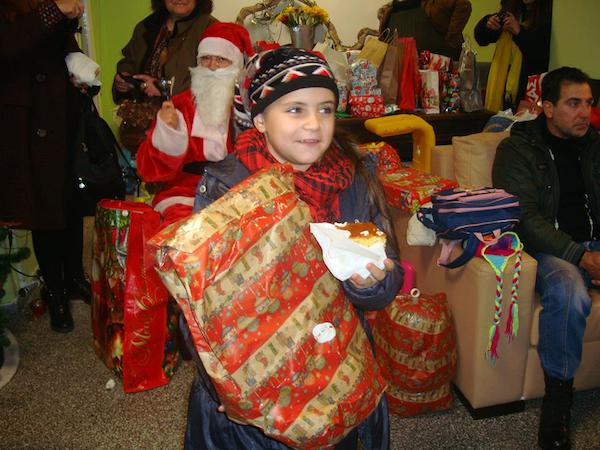
Happiness is a little girl’s face
That €1000 I gave Konstantinos was again the last money I had to donate to him, so I will call on you once more, and shamelessly so (which I allow myself to do because it’s for others, and it really helps). The Automatic Earth for Athens Fund has so far generated over $50,000(!) -one wonderful soul sent me a check for $10,000…-, and it’s a bit of a victim of its own success. The more there is, the more gets spent; we don’t want to not help people. And already the number of meals O Allos Anthropos can prepare and serve is dropping again, for monetary reasons; the number should be going up instead. We’re rowing against a strong current, which is awfully ironic, as you can see in the rest of this article.
I was reading an article earlier this week from AFP about an Italian program for refugees that shows everything that is wrong about how the crisis is being dealt with in Europe. Italy has started flying in Syrian refugees from Beirut, so they don’t have to spent a fortune on a risky sea voyage only to be locked up for months in camps. There are other ways. Kudos to Italy, and may many other countries follow their example:
Avoiding Risky Sea Journey, Syrian Refugees Head To Italy ‘Pronto’
Just before midnight in a sleepy district of Beirut, dozens of Syrian refugees huddle in small groups around bulging suitcases, clutching their pinging cellphones and one-way tickets to Italy. “Torino! Pronto! Cappuccino!” They practise random Italian words in a schoolyard in the Lebanese capital’s eastern Geitawi neighbourhood, waiting for the buses that will take them to the airport, and onwards to their new lives in Italy. Under an initiative introduced last year by the Italian government, nearly 700 Syrian refugees have been granted one-year humanitarian visas to begin their asylum process in Italy. The programme is the first of its kind in Europe: a speedy third way that both avoids the United Nations lengthy resettlement process and provides refugees with a safe alternative to crammed dinghies and perilous sea crossings.
[..] A country of just four million people, Lebanon hosts more than one million Syrian refugees. For members of Mediterranean Hope, the four-person team coordinating Italy’s resettlement efforts from Lebanon, “humanitarian corridors” are the future of resettlement. The group interviews refugees many times before recommending them to the Italian embassy, which issues humanitarian visas for a one-year stay during which they begin the asylum process for permanent resettlement. “It’s safe and legal. Safe for them, legal for us, says Mediterranean Hope officer Sara Manisera. “After people cross the Mediterranean on the journey of death, they are put into centres for months while they wait. But with this programme, there are no massive centres, it costs less, and refugees can keep their dignity,” she tells AFP.
Since March 20 was the 1st anniversary of the EU-Turkey refugee deal, many articles were published about what happened during the past year. And I haven’t seen one that was positive, which makes a lot of sense. There may be fewer refugees arriving in Greece now, but the situation of those who are in the country has gotten much worse. They are now prisoners, ‘housed’ in squalid conditions and with very little idea what will happen to them, how long their asylum applications will take to be heard, if they can or will be sent back to Turkey.
And now, with Erdogan getting ever more desperate in his quest to become the over-powerful president of Turkey, with just 4 weeks left till the referendum that should make him so, and with polls showing he’s behind, the EU-Turkey deal may well fall victim to petty politics. As it always looked to do. Who will suffer if that happens? The usual suspects, Greece and the refugees. The walls to fortress Europe are still shut tight. And it’s always election time somewhere.

Live cooking in Monastiraki Square, Athens
A friend recently translated something for me that Konstantinos had written on the O Allos Anthropos Facebook page. He said that every refugee who, before the EU-Turkey deal, passed through Greece on his/her way to Europe, cost the EU €800. For a family of 5 that adds up to €4,000, which would have been more than enough to pay for transport, stay at decent hotels and eat in normal restaurants for the duration of their trip (7-10 days). Suffice it to say, that was not what they got.
After the EU-Turkey deal made it impossible for refugees to leave Greece, €15,000 has been spent per capita. That is €75,000 per family of 5, more than enough to rent a villa on the beach, hire a butler and eat gourmet food for 8 months. Instead, the refugees are stuck in old abandoned factories with no facilities, in old tents in the freezing cold and in the rain, and forced to eat a dirt poor version of rice with chickpeas and lentil soup.
Then over the weekend I saw this confirmed in a graph issued by Refugees Deeply (with slightly lower numbers, but those are just margin errors). Note: March 16 2015 in the graph should of course read March 16 2016:
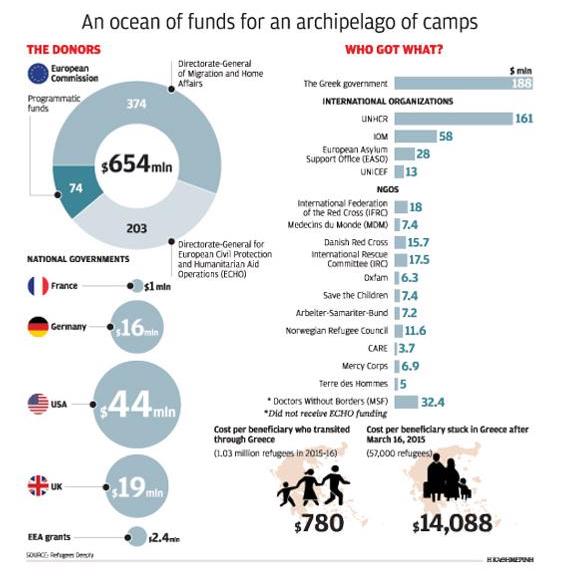
Refugees Deeply are a bit of a new kid on the block, they’re a year old, and I have no doubt they do care and have the best intentions. But since they operate throughout the world, not just in Greece, they run the same risk many international NGOs do, of spreading their resources too thin. Moreover, one thing that’s become obvious is that if you approach and treat Greece the same way as Somalia, for instance, you’re certain of making some major mistakes. Greece was a modern and prosperous country until Europe tried to turn it into Somalia.
I first heard of Refugees Deeply 2 weeks ago when they published a report called The Refugee Archipelago – The Inside Story Of What Went Wrong In Greece. A good piece, for sure, and I recommend it, but it comes up far short of naming everything that went -and is still going- wrong.
What’s good is that it focuses on the failures of the Greek government in the never-ending refugee tragedy, because that was a part that had largely been missing. But what’s not so good is that it focuses almost exclusively on that. And that’s far from the whole story.
You see, there are three separate parties involved in the saga that have access to serious funding, and all three have their own reasons NOT to solve the problems to the best of their abilities. There’s the EU, there’s Greece, and there are dozens of NGOs, many of whom are large and operate internationally (iNGOs).
The EU wants to use Greece as a deterrent. It aims to create an image to the world of Greece as a sordid inhumane place that no potential refugee should ever wish to flee to. Because it doesn’t want any more refugees. 1 million refugees is too much for a continent, and a political union, of 500 million people. Rich Europe is overwhelmed by 0.2% more people. (Note: I’m not advocation open borders or anything, I’m just saying we need to take care of people in need, which is basically what the Geneva Convention says. Until we decide to stop bombing countries like Syria, and start rebuilding them, people will come to our territory to seek help.)
The EU also wants to put Greece in an even harder predicament, for politico-economic reasons. Brussels hands out a lot of money, but it doesn’t- from what I’ve been reading- seem to keep proper tabs of where that money is going, or how it’s spent. That way its hands are always clean: we gave all this money, you can’t blame us! And their hands will remain clean until someone calls them on their lack of oversight of what happens to taxpayers’ money. But taxpayers don’t even know who to call on, Europe is faceless.
The Greek government, too, likes the deterrent idea, albeit for slightly different reasons. While the EU has money to burn, Greece has none. The country doesn’t have the means to handle the refugee influx; it doesn’t even have the means to deal with its own domestic austerity-driven misery. The last thing it wants to do is give the impression that it is able to deal with the whole thing.
That might give refugees the idea that Greece is a good place to go to, and it might give Brussels the idea that Greece can handle this, so it must be doing fine. Also, there are (party-) political issues, there is rampant corruption, and there are egos. Greece is a country that politically, socially and economically has been robbed of any and all certainties and confidence. Where the poor take care of each other and the rich only have eye for themselves. But it’s hardly a functioning society anymore, it’s a bankruptcy fire sale.
The only thing surprising about the letter bombs (parcels) for Dijsselbloem, the IMF and Schäuble sent from Greece is that it took so long. Punishing a country into paying more than they could possibly afford is Versailles redux. But sure, the Greek part in the refugee crisis needs serious scrutiny as well: how Mouzalas can still be migration minister after the Refugees Deeply piece is hard to see. Then again, sources on the ground tell me it’s not -only- him, it’s the overall chaos and infighting.
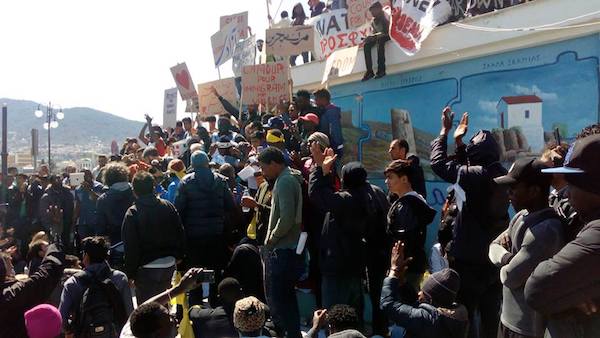
And there are protests
The third party, the NGOs, is a bit tricky to talk about. For one, because there are so many of them, and in many lots of people work with the best possible intentions. That coming to a country where you don’t know the language or culture is not a perfect plan may often get lost in translation, certainly for unpaid bright-eyed young volunteers looking for a holiday but with a meaning.
It’s tricky also because NGOs, as I’ve written before, have become an industry in their own right, institutionalized even. As someone phrased it: we now have a humanitarian-industrial complex. Which in Greece has received hundreds of millions of euros and somehow can’t manage to take proper care of 60,000 desolate souls with that.
I’ve even been warned that if I speak out too clearly about this, they may come after Konstantinos and his people and make their work hard and/or impossible. This is after all an industry that is worth a lot of money. Aid is big business. And big business protects itself.
Still, if we’re genuinely interested in finding out how and why it is possible that hundreds of millions of taxpayer euros change hands, and people still die in the cold and live in subhuman conditions, we’re going to have to break through some of the barriers that the EU, Greece and the iNGOs have built around themselves.
If only because European -and also American- taxpayers have a right to know what has made this ongoing epic failure possible. And of course the first concern should be that the refugees have the right, encapsulated in international law, to decent and humane treatment, and are not getting anything even remotely resembling it.
Refugees Deeply quotes ‘a senior aid official’ (they don’t say from what) anonymously saying that €70 out of every €100 in aid is wasted. I see little reason to question that; if anything, it could be worse. But on the sunny side that means it need not take much to improve things. If ‘only’ one third of the aid were wasted, the portion that actually helps could potentially be doubled.
Most importantly: how do you waste at least €560 million (7/10 of €800 million) when that was intended for people in misery, in peril, in desperate need? I find it hard to wrap my mind around this, can’t seem to understand how actual people in Brussels can allow that to happen, when it’s about taxpayers’ money supposed to help people in grave distress. And I can’t figure out how Greece can allow that people freeze to death on its territory, when that could obviously have been easily prevented.
Nor can I fathom how iNGOs, who together have received hundreds of millions, can fail to build a number of decent winter camps, having been warned and funded months in advance. A lot of money goes to contractors, to the caterers who provide the awful meals at ten times the cost that O Allos Anthropos does, to the builders who don’t build, to the ubiquitous wheeler-dealers who can smell a cheap profit from miles away. And NGO executives want their often hefty salaries to be paid in time.
But even then I keep on thinking: where has all the money gone? They could have built or rented great facilities for all 60,000 refugees, and fed them, and schooled their children, and still have plenty of profit left. Why must greed be so unbridled?
In view of all this wasted money, we, Konstantinos and his people, can do so much more and so much better. But then again, of course, we can’t, because we don’t have that kind of funding, not even to spend wisely. And we won‘t either since we don’t want to comply with rules that would force O Allos Anthropos to refuse a meal to a hungry person, Greek or refugee, who doesn’t have ‘the proper ID’.
That ID thing fits ‘wonderfully’ into the EU model that has turned so many refugees into de facto prisoners, and has made so many Greeks destitute. In the end, aid must come from the heart, not from a wallet. Once humanitarian aid becomes a profit-based industry, as it so clearly has here, situations like the ones I describe here become inevitable. It all must come from the desire to help fellow human beings, and that should never be something that someone gets rich off of.
And compromising that in order to let the same machine fund you that has created so much mayhem feels like a road to some place between hell and nowhere. It’s sort of the opposite of Sartre’s “L’enfer c’est les autres” (Hell is other people). O Allos Anthropos means ‘The Other Human’. In other words, heaven is other people too. I could make a good case arguing that this is the very meaning of life, that we are here to help others. But that of course is just me. And thankfully and hopefully, bless you, many of our readers.
I don’t want to spend too much time being angry over the whole thing. The best we can all do is be positive, work with we have, and help as many people as we can. Of course Konstantinos and I, and many others, talk about becoming an NGO. But in his view, that would mean becoming a part of the machine, the industry, that does so much harm, wastes so much money and precious resources, and hurts so many needy people in the process.
Konstantinos is very much opposed to that, and I agree with him (not everyone always does). For him, it’s about never forgetting the reason why you do what you do, and certainly not forgetting it for money. But at the same time, yes, with more money we could do so much more. The number of projects that don’t get done, the people who don’t get fed, because the money is simply not there, is for lack of a better term, embarrassing. Especially, obviously, because that same money does get wasted somewhere else.
So we ask you once again for your help:

For donations to Konstantinos and O Allos Anthropos, the Automatic Earth has a Paypal widget on our front page, top left hand corner. On our Sales and Donations page, there is an address to send money orders and checks if you don’t like Paypal. Our Bitcoin address is 1HYLLUR2JFs24X1zTS4XbNJidGo2XNHiTT. For other forms of payment, drop us a line at Contact • at • TheAutomaticEarth • com.
To tell donations for Kostantinos apart from those for the Automatic Earth (which badly needs them too!), any amounts that come in ending in either $0.99 or $0.37, will go to O Allos Anthropos. Every penny goes where it belongs, no overhead. Guaranteed. It’s a matter of honor.
Please give generously.

A list of the articles I wrote so far about Konstantinos and Athens.
June 16 2015
June 19 2015
June 25 2015
July 8 2015
July 11 2015
AE for Athens Fund 2nd Donation: The Man Who Cooks In The Street
July 22 2015
Nov 24 2015
Dec 25 2015
Help the Automatic Earth Help the Poorest Greeks and Refugees
Feb 1 2016
Mar 2 2016
Aug 9 2016
Nov 28 2016
Dec 21 2016

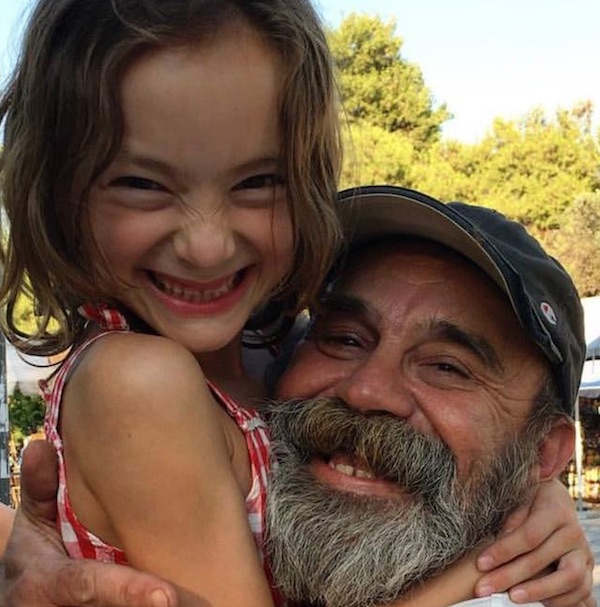
Konstantinos and a happy refugee



